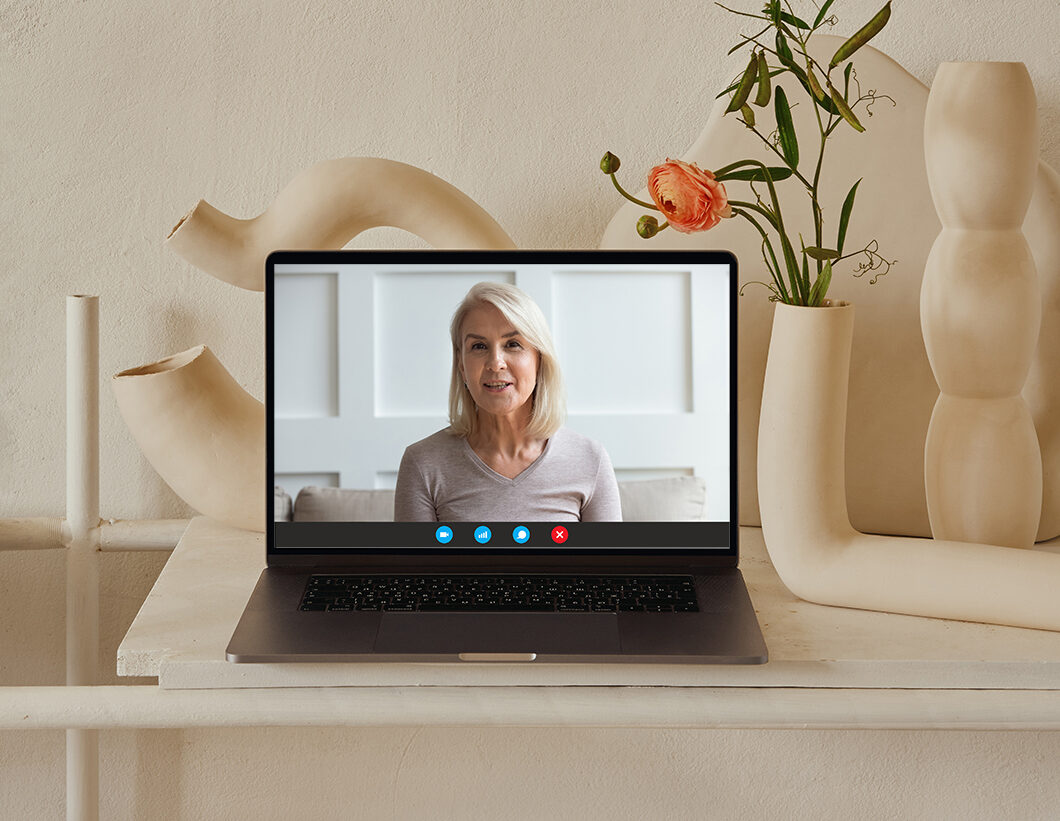Industries
contributors

Ali Bakun
Director of Marketing, Brand & Content
share article
In our fast-paced, modern world, it’s undeniable that technology plays a fundamental role in our daily lives. From the moment we wake up to the time we lay our heads on the pillow at night, technology surrounds us, shaping the way we work, communicate, and even relax. While concerns about its potential negative impacts often make headlines, it’s essential to recognize that technology, when used mindfully, can be a powerful tool for promoting and enhancing our well-being.
01.
Better Access to Counseling
Not everyone can easily access traditional mental health treatments, and various factors can create obstacles to seeking help. Fortunately, technology is changing that. There are now over 1,500 therapy-related apps available for download, some of which provide anonymous community support and live coaching or therapy sessions with trained professionals. Some of our favorites include:
02.
Virtual Activities for Connection
The pandemic pushed virtual events into the limelight, offering a lifeline for people looking to stay connected and ease their mental burdens during lockdowns. Virtual tours, online classes, live music shows, and online quizzes became immensely popular, providing a way for people to connect and reduce anxiety and depression while boosting communication, productivity, and your well-being. The Veracity team even hosted live yoga sessions to brighten up our employee’s day.
03.
Mental Health & Mindfulness Applications
Mental health apps are a convenient and accessible resource. They offer a private and secure way to access information and tools to improve mental well-being. These apps cover a wide range of features, from relaxation exercises to mood tracking. Popular options like Headspace and Calm are widely used and loved. In fact, many organizations are recognizing the value of these apps and incorporating them into their business practices, like Calm for Business. Some of our favorites include:
04.
Chatbots & Voice Assistants as Support
Chatbots and voice assistants are increasingly important in improving your mental health, especially in industries like healthcare, finance and insurance. They provide a judgment-free platform for users to discuss their concerns and receive helpful suggestions. Thanks to advancements in machine learning and natural language processing, these virtual assistants are getting smarter and better at engaging in meaningful conversations. They can even detect users’ moods and respond with empathy, offering support during challenging times. Consider integrating automated tools like chatbots and voice assistants into your everyday workflows with digital platforms like ServiceNow and Salesforce.
There’s a silent revolution taking place in the realm of mental well-being—the integration of self-serve technology, offering a newfound sense of empowerment and control.
Understanding Self-Serve Technology
Self-serve technology, in simple terms, refers to digital tools and platforms that enable individuals to access services, information, or resources without requiring direct human intervention. When it comes to mental health, these tools are proving to be a game-changer.
01.
Accessibility. Accessibility. Accessibility.
One of the most significant advantages of self-serve technology is its ability to break down barriers to accessing mental health support. Traditional therapy can be costly, time-consuming, and even stigmatized, making it challenging for many to seek help. With the mental health apps and online counseling platforms we mentioned earlier, individuals can now access support from the comfort of their own homes, at a time that suits them, and with reduced cost barriers. This newfound accessibility has the potential to reach and help countless individuals who might have otherwise struggled in silence.
02.
Personalized & Self-Paced Care
Self-serve technology allows users to tailor their well-being journey to their unique needs. Many of these apps and platforms utilize advanced algorithms to provide personalized content and interventions. This means you get support that’s precisely aligned with your challenges and goals. These self-paced, customizable approaches empower individuals to take charge of their mental health, giving them the tools to navigate life’s ups and downs on their own terms. See how Veracity enhanced member experiences with journey enhancements and self-serve capabilities—strategically putting control and knowledge directly in the hands of customers.
03.
Reduced Stigma & Privacy
The stigma surrounding mental health can often deter individuals from seeking help. Self-serve technology offers a level of privacy and anonymity that encourages people to reach out for support without fear of judgment or disclosure. Users can engage with these tools in the comfort of their own space, allowing them to open up and address their mental health concerns in a safe environment.
04.
Data-Driven Insights
Mental health doesn’t follow a 9-to-5 schedule. It can strike at any time, day or night. Self-serve technology provides 24/7 access to resources, crisis helplines, and support. Explore how a digital Benefit Hub empowered users with greater control over their healthcare decisions anytime, anywhere in this case study.
05.
24/7 Availability
Many mental health apps and platforms offer data-driven insights and progress tracking. Users can monitor their mental health journey over time, helping them identify patterns, triggers, and areas for improvement. This data-driven approach empowers individuals to make informed decisions about their mental health and track their progress toward a happier, more balanced life.
The Disclaimer: Balance is Key
While counseling apps, virtual events, and chatbots are making it easier for individuals and organizations to improve their well-being, it’s important to remember that sometimes the simplest way to take care of your mental health is to step away from your screen occasionally.





